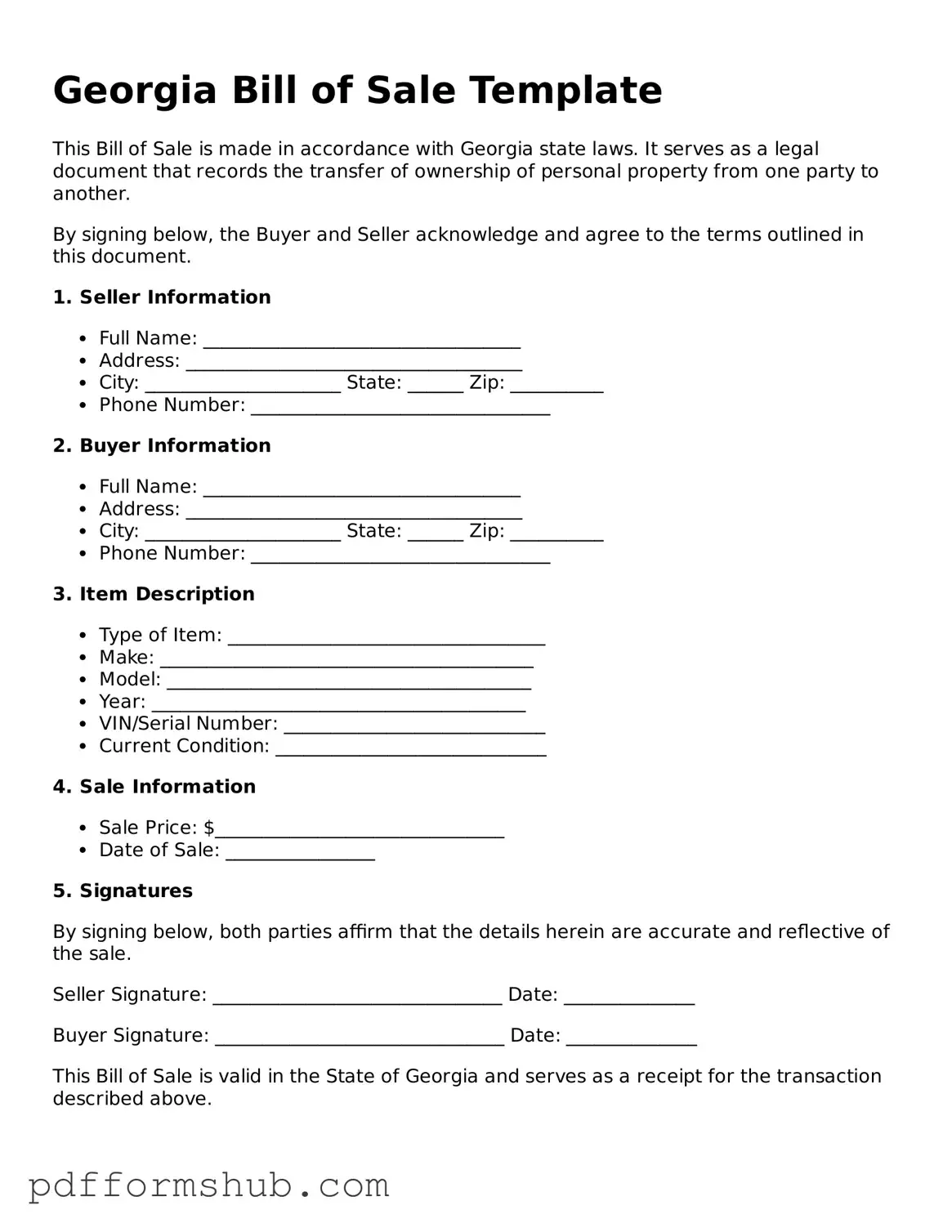Attorney-Verified Bill of Sale Form for Georgia State
The Georgia Bill of Sale form is a legal document that serves as proof of the transfer of ownership for personal property from one individual to another. This form outlines essential details about the transaction, including the buyer, seller, and the item being sold. To ensure a smooth transfer, it's important to fill out this form accurately; click the button below to get started.
Customize Form

Attorney-Verified Bill of Sale Form for Georgia State
Customize Form

Customize Form
or
Free PDF Form
Short deadline? Complete this form now
Complete Bill of Sale online without printing hassles.